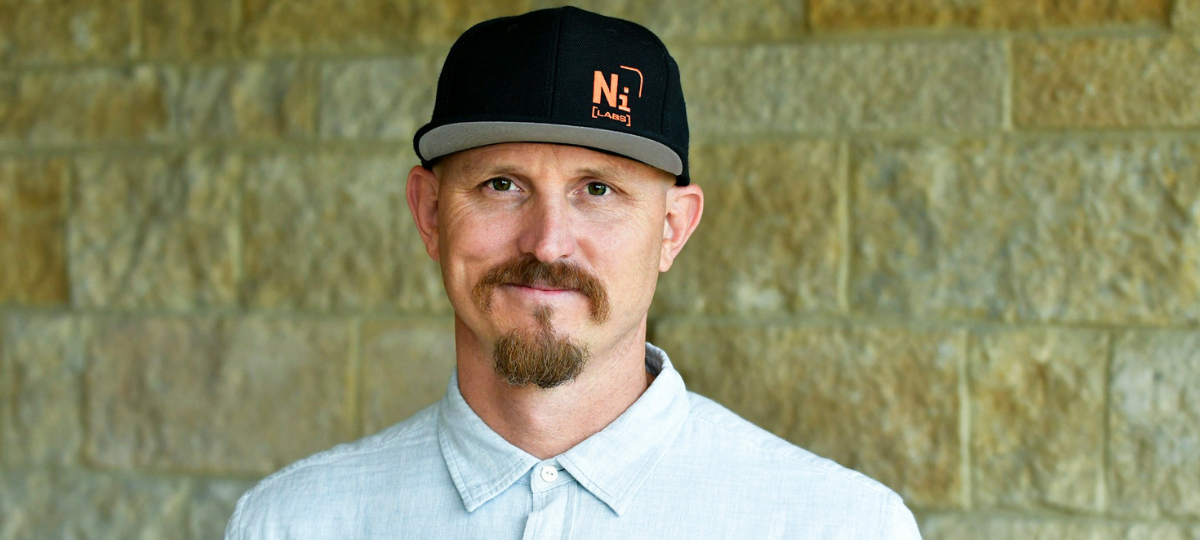When you first hear how Mick Ebeling commits to solving some fairly large problems—like helping a Sudanese boy who lost both of his arms feed himself or feeding hungry people during a global pandemic—without first having any idea how he’s going to, you know, actually solve the problem, you can’t help but wonder if it’s true.
Then you listen to him talk, and suddenly you realize not only is he solving big problems, he’s making the solutions available to everyone, and he and his team are doing this again and again.
Ebeling, who is CEO of Not Impossible Labs, a multiple award-winning social innovation lab and production company, truly believes that nothing is impossible. His mantra is “commit, then figure it out,” words that have helped him continually bring together the people—and expertise—he needs to meet the challenges he accepts head on and with the creativity and ingenuity required to get things done.
Inspiring? Definitely. But for massage therapists dedicated to the profession they love and the clients they work so hard to help, another word might also come to mind: passionate.
Massage Therapy Journal sat down with Mick Ebeling, Keynote Speaker for the AMTA 2022 National Convention to be held August 25-27 in Cleveland, Ohio, to talk about how he stays focused, the importance of teamwork and the self-care strategies he uses to stay healthy so he can continue making the impossible possible.
So much of your work begins with committing before having an idea or solution. Why is this the first step in your process? What is important about committing first before brainstorming or trying ideas/solutions to the issues you’re working on?
If you don’t commit, then you can always use an escape hatch. But there is something incredibly focusing and empowering once you’ve taken that leap of faith, when you run into tough times, when you run into things that you don’t feel like you can surmount.
If you’ve given yourself the option to exit, then there’s the possibility that you will take that escape hatch. But, if you committed to it 100 percent, then the chances are that you will finish what you started. We just believe that nothing can change that—you’re going to finish once you’ve started.
You talk about failure in most, if not all, of your projects. What does failure teach you and how do you continue to commit after repeated failures?
We celebrate failure because we truly understand that the aggregate of failures will be success. That each failure we make, we know that we’re one step closer to attaining what we wanted to achieve.
When you take a commit-first approach, it would seem likely there’d be a moment of fear or panic attached to the idea of potentially not being able to finish what you started or find a solution. How do you manage that fear of the unknown? What strategies do you use to help you continue taking those big leaps of faith?
We don’t consider it “fear” or “panic,” but more like butterflies before the big game. The nervousness is something that we actually relish and celebrate because we know that if the one we’ve committed to and the absurdity is big enough, that anxiousness is natural and we just need to jump feet first into the big game, like an athlete about to perform. Being anxious and nervous about where you’re at just means that what you’re tackling is big enough and worthy enough.
You’ve seen some very inspiring things in the work you do at Not Impossible Labs. Can you share one of the most inspiring moments you’ve experienced? How does that inspiration continue to motivate your work?
I have many! Watching Daniel feed himself for the first time in two years. Watching Tempt draw for the first time in seven years. Watching Joe play the piano after years of being unable to. Seeing our Hunger: Not Impossible initiative feed over 100,000 meals in our country during the COVID-19 pandemic. These are the things that make what we do so incredible and emotionally rewarding. Those moments give us the fuel to continue on and tackle these challenges.
Resilience seems to be integral to the work done at Not Impossible Labs. Where does your resilience come from?
My resilience comes from my upbringing. You have to give a lot of that credit to my parents. We were always taught to blaze our own trail. I think that upbringing, combined with being in the Air Force, is definitely a big factor.
All of your work seems to depend on people coming together to problem-solve. What does teamwork mean to you? What are some ways you keep a team working together?
One of the amazing things about Not Impossible is that the teams that we’re blessed and privileged to have and work with dedicate themselves because they believe in the “ones” that we’re helping; they believe in the cause. So, that focus on one person, the humanity and the passion around that one project, is what really makes it special. Keeping teams together isn’t very difficult for us because everybody is focused on a central goal.
Do you have self-care strategies that help you stay positive and focused when things aren’t going as planned?
For me, it’s regular and vigorous exercise like hiking, snowboarding, cycling and skateboarding, for example, things that really move your body. I’ve honestly learned a lot from the Parkinson’s community around the release of endorphins and dopamine via exercise and how it not only helps the physicality of the human, but also the psychology. Also, I will take a massage any chance that I can get. My team would love it if I would invest in a full-time massage therapist to be in our office.
